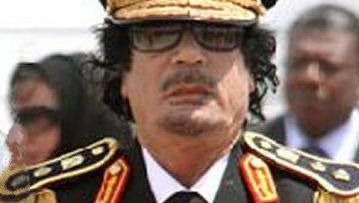What Qaddafi’s Death Tells Us About the Will to Power

In a previous post, Big Think speculated about what Col. Muammar el-Qaddafi’s death would mean — for the Arab Spring, for the price of oil, for President Barack Obama, etc. These were questions worth asking, after all, since Qaddafi’s death has seemed imminent for many months now.
Today, we learned that Qaddafi is finally dead. This news hardly comes as a surprise to us, and is especially unsurprising to Bruce Bueno de Mesquita, a political scientist at New York University and the author of The Dictator’s Handbook: Why Bad Behavior is Almost Always Good Politics. In that book, de Mesquita argues that leaders will do absolutely anything to stay in power, even if that means they will wind up dead.
According to de Mesquita’s research, “those who are in power overwhelmingly seem to want to stay in power” and almost never give up the reigns willingly. In fact, de Mesquita pointed to a study one of his students at NYU conducted that looked into every democratically-elected, national leader in the world since World War II to see how many of them voluntarily left office.
“There were only four who seemed just to leave office because they were tired of being in power,” de Mesquita told Big Think. “All the others left office either because they had to, they were term-limited, or they were dying.”
In other words, “everybody who aspires to be in power wants to keep it,” de Mesquita says. “Now most of us don’t aspire to be in power. Most of us are probably people who are more pleasant than the folks who run companies and corporations and so forth, but then we’re not the ones that we have to be concerned about. We have to be concerned about the people in power.“





